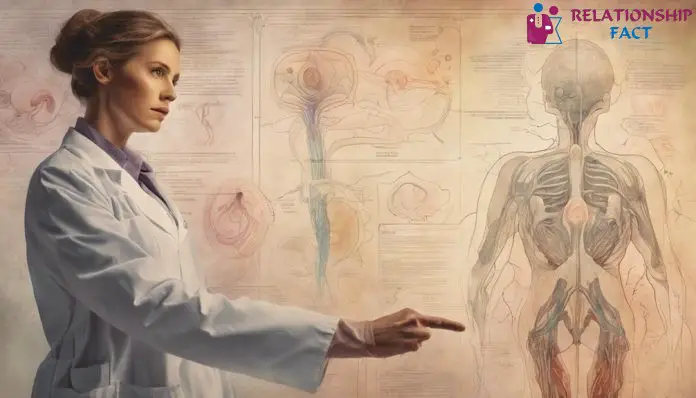
You might feel like you're trying to plant a garden with seeds that never quite take root, despite your boyfriend's efforts. The frustration and uncertainty surrounding fertility can be overwhelming.
But before jumping to conclusions, consider this: there could be a multitude of reasons why conception hasn't happened yet. From hormonal imbalances to genetic factors, the intricacies of human reproduction are vast and varied.
Stay tuned to uncover the complexities behind why your boyfriend may be having trouble getting you pregnant.
Key Takeaways
- Male infertility factors like sperm disorders and varicoceles can hinder conception.
- Female reproductive health issues such as ovulation disorders and uterine abnormalities affect fertility.
- Lifestyle choices like smoking and poor diet can impact sperm quality and fertility.
- Timing in conception is crucial, missing the fertile window reduces pregnancy chances.
Male Infertility Factors
Male infertility factors, including sperm disorders, varicoceles, and poor sperm delivery, play a significant role in approximately 15% of cases where couples experience difficulties conceiving. When investigating male infertility, key aspects to ponder are low sperm count, hormone levels, varicoceles, and sperm disorders.
Testicular exams are important in evaluating male reproductive health, as they can reveal issues such as varicoceles – enlarged veins within the scrotum that can affect sperm production. Hormone level blood tests are also essential in assessing the presence of conditions like polycystic ovary syndrome (PCOS) which can impact fertility.
Understanding these male infertility factors is crucial in determining the underlying causes of conception challenges and guiding appropriate treatment strategies.
Female Reproductive Health Issues
When considering female reproductive health issues, obstructions in the fallopian tubes can greatly impact the fertilization process by preventing the egg from reaching the uterus for potential fertilization. Ovulation disorders, such as Polycystic Ovary Syndrome (PCOS), can disrupt the regular release of eggs necessary for conception. Uterine abnormalities like fibroids and polyps may impede the implantation of a fertilized egg.
Additionally, conditions like endometriosis can cause damage to the fallopian tubes, affecting the fertilization process. Evaluation through procedures like X-ray (HSG) can help identify issues such as fallopian tube blockages that may be hindering fertility.
If you're experiencing challenges while trying to conceive, consulting with a healthcare provider to investigate these female reproductive health issues is essential for proper diagnosis and potential treatment.
Impact of Lifestyle Choices

Excessive alcohol consumption and smoking habits can greatly decrease sperm quality and motility, directly impacting fertility. When trying to conceive, lifestyle choices play an important role in male reproductive health. Poor diet and lack of exercise can lead to obesity, affecting hormonal balance and sperm production. Additionally, exposure to environmental toxins like pesticides or chemicals can harm sperm health, reducing fertility.
High stress levels may disrupt hormonal balance, leading to a decrease in sperm count and hindering conception. Adopting a sedentary lifestyle and wearing tight underwear can elevate scrotal temperature, potentially lowering sperm quality. By making healthier lifestyle choices, such as maintaining a balanced diet, regular exercise, and managing stress levels, you can positively influence sperm quality and improve the chances of successful conception.
Importance of Timing in Conception
Timing is a critical factor to contemplate when aiming for successful conception, as it greatly impacts the chances of fertilization during a woman's fertile window. Ovulation, the release of an egg from the ovary, typically occurs around the middle of a woman's menstrual cycle, marking the peak time for conception.
This period, known as the fertile window, only lasts a few days per cycle. Sperm, on the other hand, can survive in the female reproductive tract for up to 5 days, enhancing the chances of fertilization if intercourse occurs before ovulation.
Understanding ovulation patterns and tracking fertility signs such as cervical mucus consistency and basal body temperature can help pinpoint the best timing for conception. Missing this window due to incorrect timing can greatly reduce the likelihood of getting pregnant.
Seeking Professional Fertility Evaluation

To gain a deeper understanding of potential fertility challenges, seeking a professional evaluation can provide valuable insights into your boyfriend's reproductive health and potential barriers to conception. A reproductive endocrinologist can conduct thorough tests to assess sperm count, motility, and overall reproductive function.
These evaluations may involve physical exams, hormone level checks, and genetic testing to identify any underlying causes of infertility. By consulting a fertility specialist, you and your partner might receive personalized recommendations to enhance your chances of getting pregnant.
Early intervention through a thorough evaluation can greatly increase the likelihood of successful outcomes, including exploring options such as Fertility and IVF treatments tailored to your specific needs.
Frequently Asked Questions
Why Am I Not Getting Pregnant With My Partner?
You may not be getting pregnant due to various factors like male infertility issues, medical conditions, lifestyle choices, and other health-related concerns. Consulting a fertility specialist for a thorough evaluation and tailored treatment plan is recommended.
Why Am I Not Getting Pregnant When Everything Is Normal?
When everything appears normal but pregnancy isn't happening, various factors may be at play. Consider lifestyle habits, stress levels, and timing of intercourse. Both partners' health matters; consult a fertility specialist for targeted guidance.
Why Is It so Hard to Get Pregnant?
Getting pregnant can be challenging due to factors like age, health conditions, hormonal imbalances, and lifestyle choices. Factors affecting fertility in both partners can impact conception. Seeking medical advice and evaluation can help address infertility concerns.
What Makes It Hard for a Man to Get a Woman Pregnant?
When trying to conceive, factors like sperm disorders, varicoceles, and blockages in the reproductive tract can impede a man's ability to get a woman pregnant. Lifestyle choices and medical conditions can also impact fertility.
Conclusion
Despite your boyfriend's best efforts, it seems that the stars haven't aligned for conception.
However, fear not, for science and technology are here to assist you on your journey to parenthood. With the right support and professional guidance, the road to fertility may not be as elusive as it seems.
Remember, patience and perseverance are key in overcoming the obstacles of infertility. Keep faith in the process, and your dreams of starting a family may soon become a reality.





